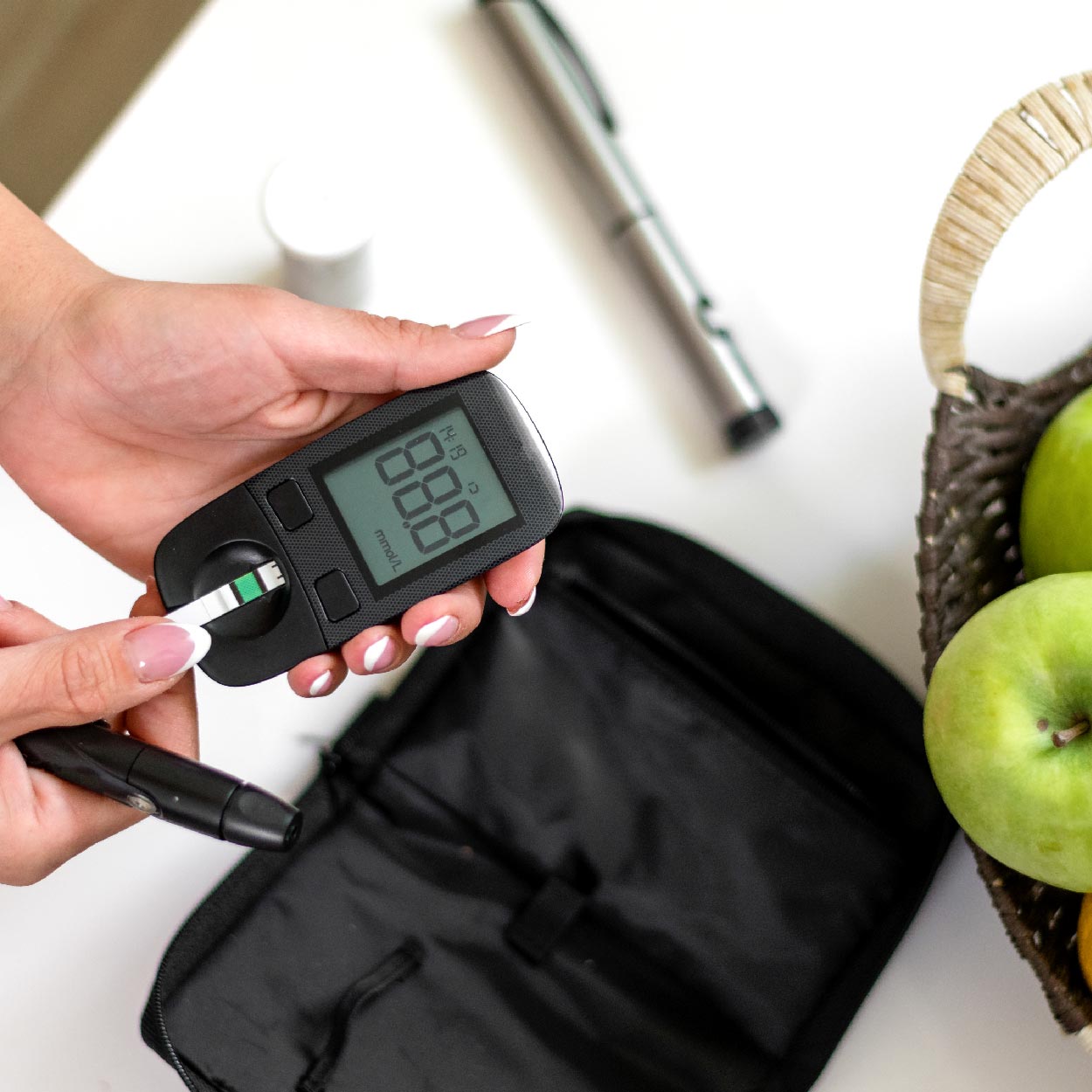I’m so stressed!” “That situation was so stressful for me!” We hear exclamations like these on almost a daily basis. It’s hard to understand how a word can be used so frequently, yet not be clearly defined. Is it because stress is not something that we can actually touch and manipulate? Is it too subjective to be scientifically or medically delineated?
We may not know how to precisely describe it, but we do know that it exists and that it is killing us. Like a virus that has taken many lives but still hasn’t been isolated and given a name. Even if there is no consensus on what it is, stress has to be taken seriously. To this end, each of us should know the signs and symptoms that are unique to us as individuals. We should literally “take it personally” and have tailor-made responses in place. For even though the term remains vague, one thing is certain—stress is a critical factor in many disease states, particularly diabetes, and requires our utmost attention.
The general definition of stress is “a condition resulting from the application of force on an object.” In relation to the human body, it can be further described as the reaction of the person to physical or mental forces that disturb the body’s normal equilibrium or balance, known as homeostasis. With an object, whether it is elastic material or a table, whenever a weight is placed on it, something has to give in order to accommodate the physical burden to which it has been subjected.
When you experience stress, mental or physical, your body prepares to take the corrective measures necessary. It is under attack and will eliminate the enemy by any means necessary. This is known as the “fight-or-flight” response. Survival depends on it. While the biochemical and physiological pathways of such a response can be difficult to comprehend, when discussed in practical terms, and keeping it “personal,” each of us can learn to ascertain what our bodies are seeking to tell us. There is no one-size-fits-all definition of stress. Nor is there a generic formula for dealing with it, but there is certainly a commonality among the signs and symptoms that, after adjusting or “tweaking” for differences among individuals, allows us to make the needed changes, which are person-specific. Think of it as having a personal trainer for stress.
Before you can personalize your “stress profile,” it is important to review what is already known about the physiological, psychological, and, yes, sociological nature of what has become a big part of our lives.
Let’s say that you are on your way to a job interview, or you just had an argument with your significant other, or you just came down with the flu. These are all events that the human body perceives as threats to its normal functioning.
It reacts through a series of events:
- A small area at the base of the brain, called the hypothalamus, sets off the alarm. Not unlike a ship’s captain announcing “all hands on deck” when there is a threat from an enemy vessel.
- The nerve and hormone signals get involved, causing the adrenal glands, above the kidneys, to release the so-called stress hormones—adrenaline, cortisol, and epinephrine. These act to elevate the heart rate and blood pressure; they also increase the level of glucose in the blood. The net effect is to increase the energy supplied to the cells, enabling the body to carry out its fight-or-flight response.
- Cortisol almost acts as a guard who is called in when there is a prison lockdown. It stops all nonessential activity to concentrate on the threat at hand. The immune and digestive systems get the message, making the necessary adjustments. Also, muscles can become tense and breathing becomes more labored and faster. The liver plays its part by producing more glucose, presumably providing extra energy so that the latest assault can be dispensed with and so that normal functioning can resume.
This “alert” activity is fairly harmless, and even necessary, when kept to a minimum. Problems occur when stressful situations become more like the norm than the exception. The body becomes overexposed to cortisol and other stress hormones, which can throw your entire body out of whack, and many times, bring everything to a standstill.
Common signs that you are stressing too much include frequent headaches, neck or back pain, problems swallowing, frequent colds and infections, heartburn (the connection between gastroesophageal reflux disease (GERD) and stress is receiving a lot of attention), rapid pulse, and increased anger or anxiety. The American Institute of Stress (AIS) provides a comprehensive list of signs and symptoms on its website.
Of particular importance to people with diabetes is the continual high blood glucose levels that are due to long-term stress. These patients already have problems with glucose utilization, so a vicious cycle ensues: an increase in the release of cortisol in response to continued mental or physical stress-causing events or conditions; followed by elevated amounts of glucose (brought about by increased levels of cortisol) to provide the energy needed for the fight-or-flight response; followed by an increased requirement for insulin (to process the glucose).
This, in addition to exacerbating the psychological toll that diabetes already takes on those who suffer from this debilitating illness, making those who suffer from this disease feel even more hopeless about their condition. This, not unexpectedly, often results in patient apathy and a loss of interest in properly taking care of themselves. It is not difficult to see how people simply give up.
As if things were not complicated enough, research has also shown that there is a connection between stress and minority status in American society. Because there is such a high incidence of stress-related disorders, along with diabetes among African-Americans, an attempt has been made to study the correlation between “perceived” racism-related stress and diabetes.
Although this subject demands more rigorous research, it cannot be denied that a person’s continual perception of unequal treatment, exacerbated by documented practices of institutional racism–job discrimination, substandard housing and educational opportunities, poor healthcare options–would keep that person in a perpetual fight-or-flight mode. This particular type of stress applies to anyone who perceives unfair treatment by dominant society; examples of difference include race, weight, height, religion, or sexual orientation. Even if the enemy is within, it is still stress for that individual and has to be properly addressed by that person.
It is thus not surprising that the consumption of fatty foods (stress eating) would be high among African-Americans and others who are stressed by societal reactions to them. These foods are often fried, so they smell and taste good. So, after spending the day in what is at least perceived as a hostile environment, why not indulge in eating what makes you feel good? It’s not called comfort food for nothing. Of course, this starts and promotes a vicious cycle: continual stress, followed by consuming a high-fat and carbohydrate diet for solace; thus increasing the glucose levels in the bloodstream, accompanied by an increased need for insulin, and so on. Needless to say, this can result in high blood pressure, atherosclerosis, and cardiac problems, which compounds the problems faced by people with diabetes.
So how do we manage stress? Start by knowing yourself, inside and out. Know what stress feels like to you. Actually write a note to yourself when you, for example, have a headache or pain in your stomach, or when you have trouble swallowing. In this way, you can learn to associate a stressful situation with the physical expression of that source of stress. If you have diabetes, rate your stress level (on a scale of 1 to 10) each time you check your blood sugar. You can then correlate stress with your blood glucose level, then figure out what made you feel bad at that particular time.
Next, proceed with stress management techniques like relaxation and exercise, avoiding what you (hopefully) know is the source of your stress, maintaining a safe distance from “toxic” people, discontinue stress eating, etc.
Most importantly, get out more! Stressed people tend to isolate themselves, which is bad for anyone’s mental and physical health. Join a group, any group. Make it a habit to visit a farmer’s market. In this way, you can kill two birds with one stone—get your exercise by walking about the market and get “mental therapy” by socializing with other people.
Because stress is a complicated condition that not only has a physiological basis, but also involves complex psychological and sociological components, its prevention and “treatment” require vigilance on the part of the individual. Keeping stress under control is essential for good health and is thus a critical factor in managing diabetes.




